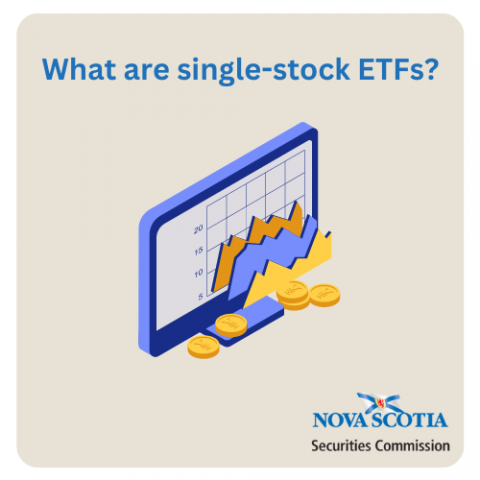Submitted by nsscadmin on

You may be aware that an exchange-traded fund (ETF) is typically a collection of securities that allows an investor to diversify their portfolio by purchasing one investment. That has changed slightly following the launch of the first single-stock ETFs in Canada in December 2022.
As the name suggests, a single-stock ETF is an ETF that invests in a single stock. For example, some of the first single-stock ETFs launched in Canada invested in Google, Amazon, Apple, and Tesla.
Single-stock ETFs existed in the United State before they were introduced in Canada, but there is a distinct difference between the ones offered in the US and those offered here in Canada. In the US single-stock ETFs offer investors access to short-selling and heightened leverage. They are highly risky and not meant to be held long-term or held at all. Due to the inflated risks, U.S. regulators have issued alerts and warnings about single-stock ETFs to protect investors from taking on too much risk.
In Canada the first single-stock ETFs are yield-focused. They still expose investors to leverage, but it is limited to 25 percent and use covered calls to provide income via monthly cash distributions. If you are interested in single-stock ETFs, be sure to discuss the product with your adviser to determine if they fit your financial goals, and your risk tolerance.
The Nova Scotia Securities Commission does not provide investment advice. We are not advising or recommending the use of single-stock ETFs. This post is simply to educate investors on these securities to let them know they exist and how they work. An investor should work with their adviser to determine if these products are suitable for them and their financial situation and goals.
